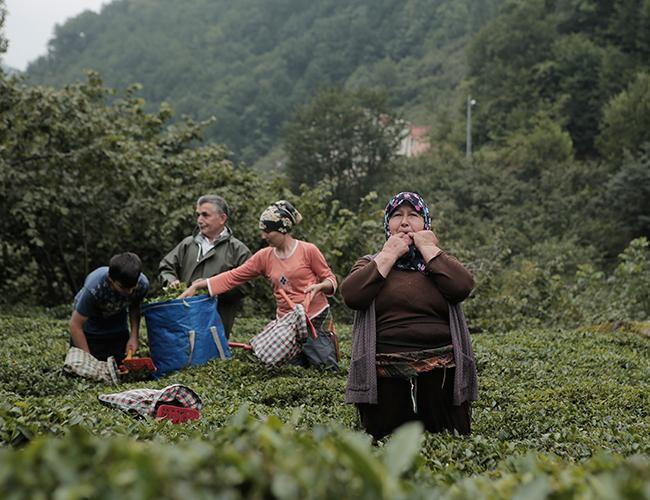UN moves to protect whistled ‘bird language’ in Turkey’s Black Sea region
ANKARA – Anadolu Agency

The whistled “bird language” used by small groups of Black Sea villagers in remote northern Turkey has joined a UNESCO list of endangered languages in need of “urgent safeguarding.”
Around 10,000 people, mostly from the district of Çanakçı in the province of Giresun, currently use and understand the language, according to UNESCO.
Initially developed to allow people to communicate across steep mountain valleys, the language’s decline began to accelerate with the advent of mobile phones, which provide an easy communication alternative.
Welcoming efforts to preserve the language, Culture Minister Numan Kurtulmuş tweeted: “Whistled language, also known as bird language, which has echoed in the eastern Black Sea region for centuries, has entered the list of Intangible Cultural Heritage in Need of Urgent Safeguarding of UNESCO.”
“I congratulate my fellow Black Sea locals who have kept this culture alive,” he said.
The whistled language is commonly used in the village of Kuşköy, which translates as “bird village.”
Until 50 years ago, it was widely spoken in the areas of Trabzon, Rize, Ordu, Artvin and Bayburt, but has since either disappeared entirely or been reduced to a few words spoken by shepherds.
According to UNESCO, although the people of Çanakçı understand the importance of the language, technological developments and emigration have resulted in a “decline both in the number of people using the whistled language and the areas where it is spoken.”
“It is also clear that the new generations’ interest in whistled language has considerably diminished,” the organization said. As a consequence, the practice risks being gradually separated from its fundamental sphere of use, to become “an entertainment-oriented, artificial practice.”
The organization also lauded the language as a “strong indicator of human creativity,” as whistling sounds modulated by the fingers, tongue, teeth, lips and cheeks are able to simulate and articulate words.
Dozens of whistled languages are found across the world, primarily in areas where steep terrain or dense forests make communication difficult over distances, such as the Atlas Mountains of North Africa, the highlands of northern Laos or the Amazon basin in Brazil.
Since 1997, Kuşköy has held the Bird Language Festival to promote the language’s use. The district has also provided training programs to primary school pupils for the last three years.
Despite these efforts, UNESCO found that “the whistled language may soon totally disappear, unless essential safeguarding measures are undertaken using an integrated approach.”
















